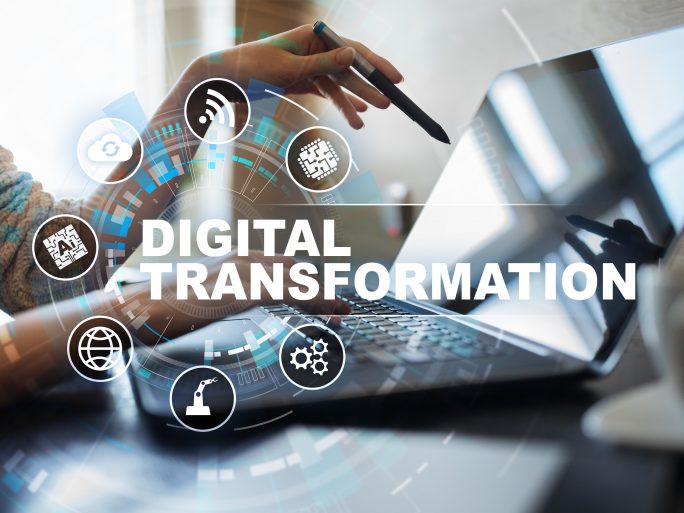Learning From Your Own Digital Transformation

PwC advises companies on their digital transformation. What insights have the consultants gained on their own journey?
A successful and sustainable digital transformation requires human and technological factors to work together harmoniously. To achieve this, PwC relies on the “human-led & tech-powered” approach: Technology is only as good as the people who use it. The consultants’ knowledge and technological capabilities therefore work best in tandem. Consultants contribute their expertise and creativity, while technology helps deliver innovative solutions.
New structures are a must…
To improve the consultants’ skills and disseminate the necessary knowledge more effectively within the company, PwC launched in 2019 the “Digital Accelerators”. Approximately five percent of PwC’s global employees participate in the ongoing program. The goal: to promote agility, learn how to use technologies such as AI, and consistently apply creative methods. Particularly important: After the training, the participants pass on their knowledge to their teams. In this way, new technologies can be optimally applied across the organization, for example, to standardize routine tasks and create room for innovation.
…and partnerships are the ideal complement
PwC complements its own expertise with technology partners, such as SAP, Microsoft, Salesforce or Workday. Together with these partners, the consultants are thus able to develop special technological solutions with and for clients. PwC also cooperates with companies in the field of automation. Take UiPath, for example: With this partner’s solutions, PwC develops bots that take over recurring administrative tasks such as system documentation. Partnerships are thus an important key for companies to complement their own expertise, release new potential and at the same time ensure that the solution also fits their individual operational needs.
Technology is not an end in itself
Technological progress is also the basis for broad progress in society. One of PwC’s showcase examples: the Sustainability Tracker. This solution enables companies to evaluate their entire supply chain, including CO2 consumption, and make it future-proof and compliant. Whereas PwC consultants used to have to perform these analyses manually, the software solution now automatically retrieves all the necessary data from the client’s various systems and combines it with external market information and PwC’s own findings. The result: companies receive new insights much faster than before and can effectively optimize their supply chains, monitor their ESG impacts, and comply with regulatory requirements such as the Supply Chain Sourcing Obligations Act much more easily.
Change from within
However, digital transformation will only be sustainably successful with a paradigm shift: Whereas change was often driven by the management level in the past, everyone in the company is now responsible for its success. Because only if all employees have a say and can accept and help shape the change, it can also succeed. Managers must set a good example and at the same time take into account the input and feedback of employees during the change process. This is the only way that companies can also reflect the operational requirements of day-to-day business in their transformation.